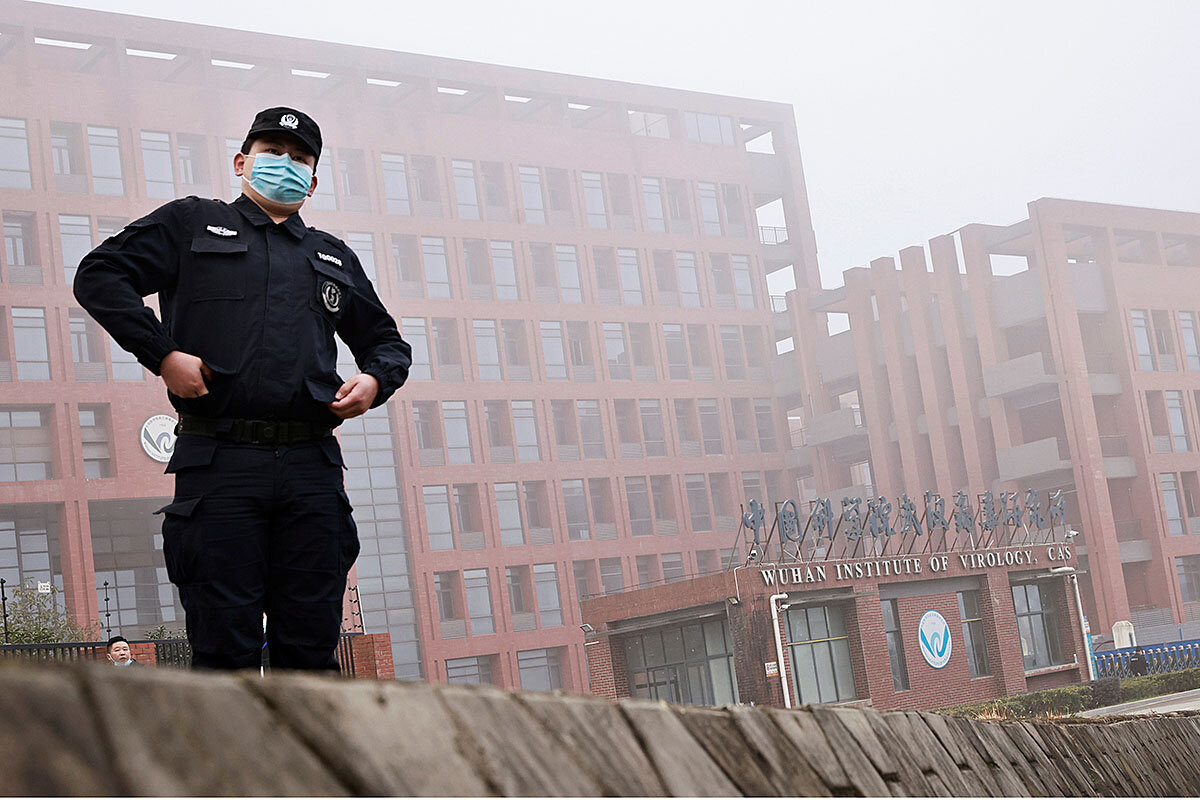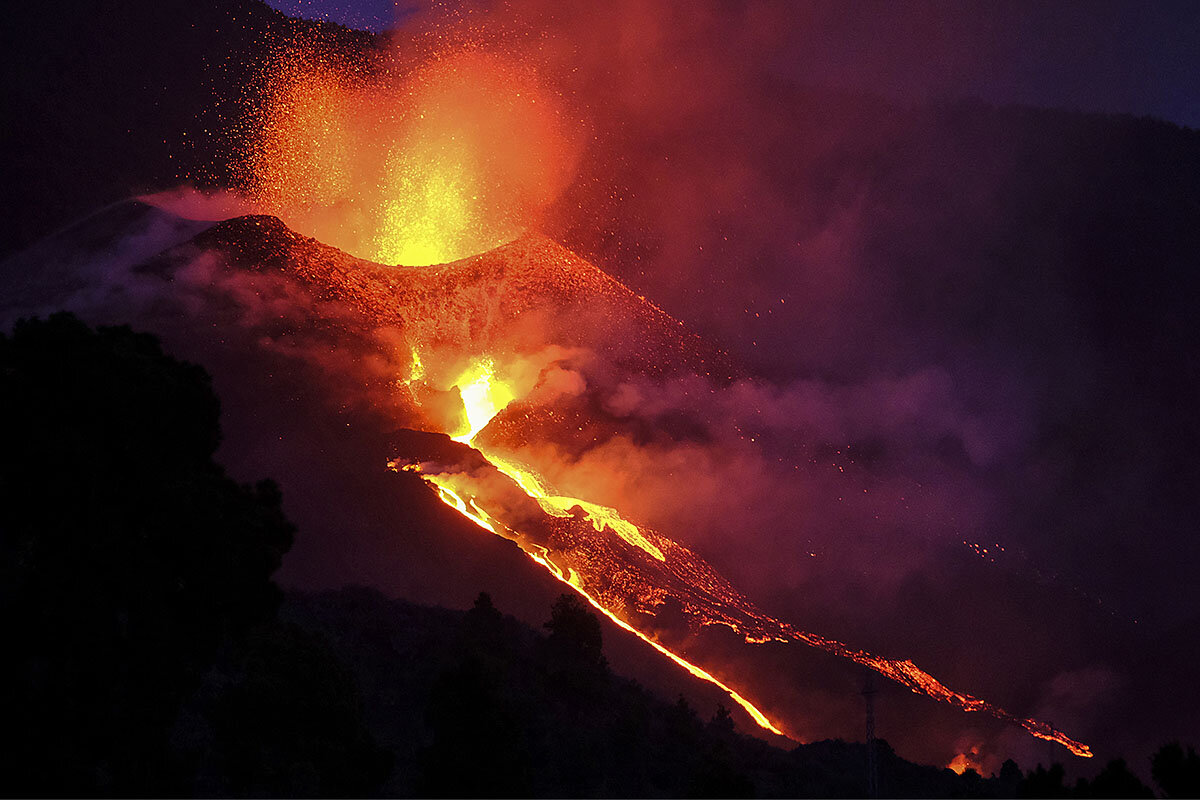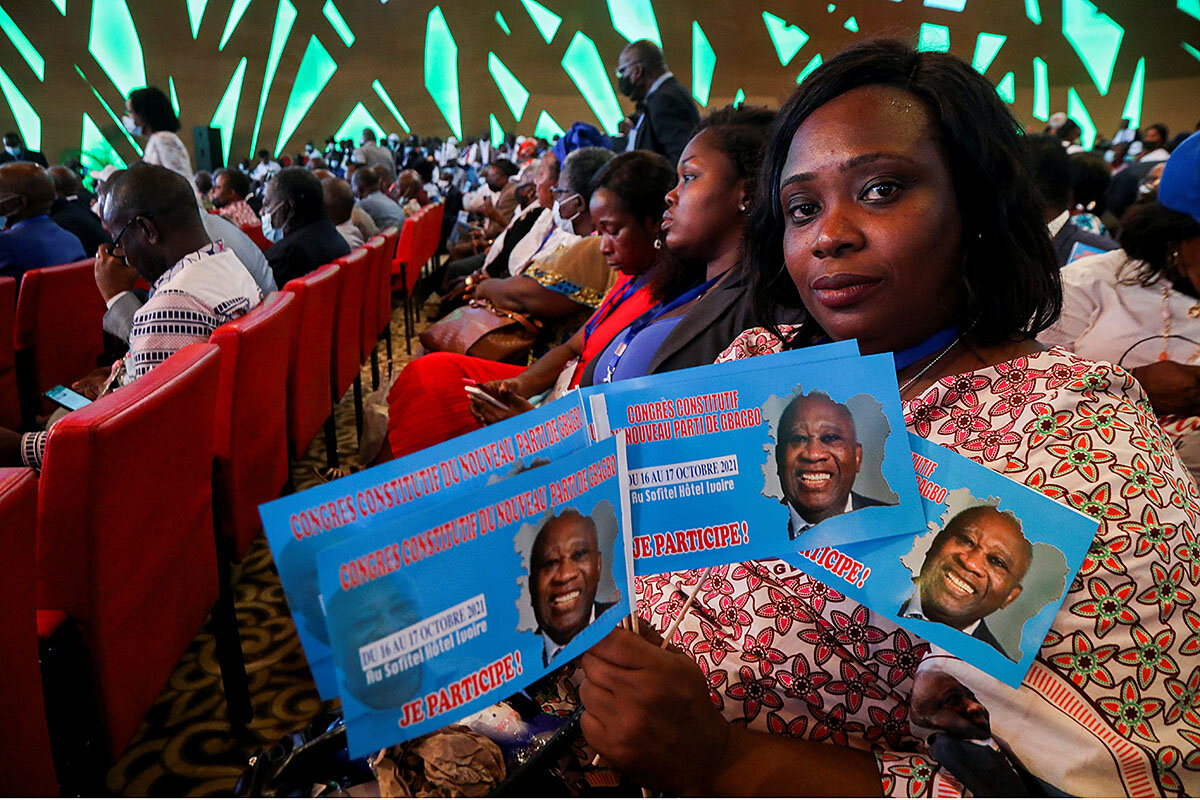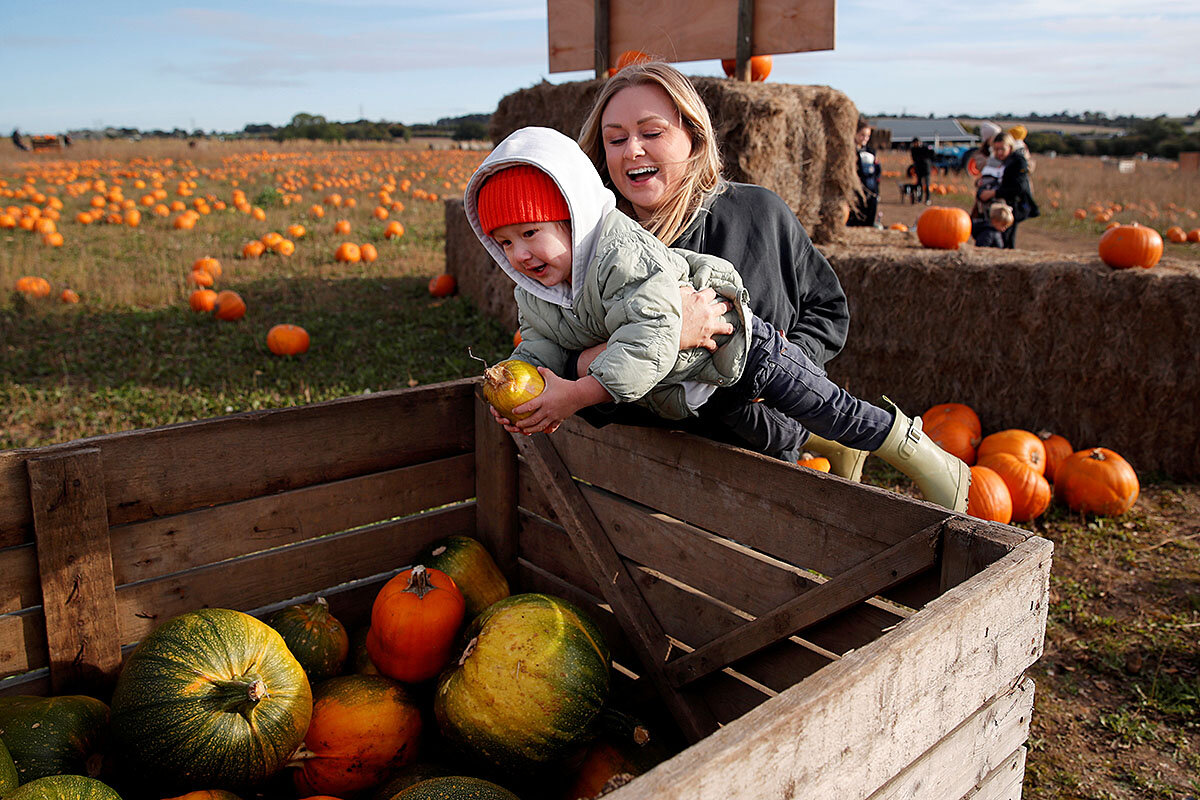Americans are angry, but what are they doing with their outrage? We talk to Americans of all political affiliations who have channeled that emotion in creative or productive ways.
Monitor Daily Podcast
- Follow us:
- Apple Podcasts
- Spotify
- RSS Feed
- Download
 Colette Davidson
Colette Davidson
When I was growing up in Minnesota, “Joe Versus the Volcano” was one of my favorite movies. I longed to be swept away to a tropical island. But as I found myself in La Palma reporting on the Cumbre Vieja eruption in the Spanish Canary Islands, I quickly realized that there’s nothing romantic about volcanoes or being stranded – even on an island.
I had come prepared – an N95 mask, baseball cap, and a ridiculous-looking turquoise swimming mask my Spanish mother-in-law lent me. But nothing could prepare me for the invasiveness of the volcanic ash. It fell from the sky like a rainstorm, lining streets, covering doorways and windowsills, and filling the crevices of my ears.
It wasn’t long before the airlines canceled all flights. When tourists began panic-buying all the ferry tickets as I was interviewing residents about their futures, I realized I had, quite literally, missed the boat.
For two days, I wandered empty streets awaiting the resumption of travel, carrying a backpack and feeling progressively stuck – and at times panicked.
And then I realized I was being given the chance for deeper insight. Here I was experiencing, albeit in much lesser degree, what the people I was writing about were feeling: uncertainty, frustration, and fatigue from living next to an erupting volcano with no end in sight.
Like the people of La Palma, I leaned on others to get me through – from the English woman who gave me a bag of oranges from her garden to the church that let me use the bathroom after being stranded at the top of a mountain.
As I finally left – via boat – I realized how grateful I was to have experienced the humanity of the people in La Palma in the face of crisis. I know it’s what will pull them through it.










